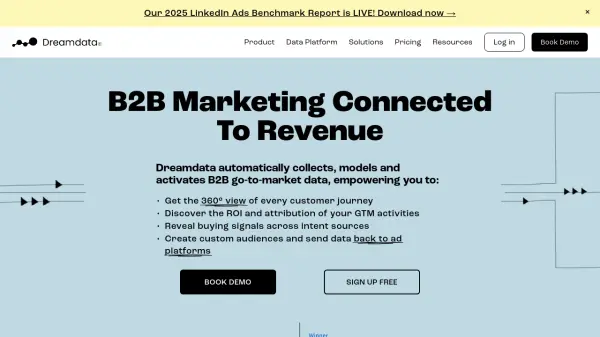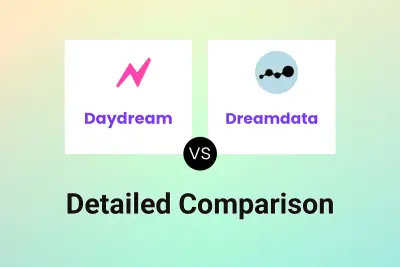What is Dreamdata?
Dreamdata provides a comprehensive B2B go-to-market data platform designed to connect marketing activities directly to revenue outcomes. It automatically gathers and structures data across various touchpoints, offering businesses a unified view of their customer journeys. This allows for a clearer understanding of how different channels, campaigns, and content contribute to pipeline generation and overall revenue.
The platform enables detailed performance analysis through data-driven attribution models, helping marketing teams identify the true return on investment (ROI) for their initiatives. By tracking interactions and utilizing intent signals from multiple sources, including first-party tracking and integrations like LinkedIn ads and G2, Dreamdata helps prioritize sales and account-based marketing efforts towards high-potential accounts. It also facilitates the creation and activation of custom audiences by syncing data back to advertising platforms.
Features
- Customer Journey Mapping: Provides interactive timelines showing every touchpoint for each account.
- Performance Attribution: Utilizes data-driven attribution models to measure the revenue impact of channels, campaigns, and content.
- Revenue Analytics: Delivers detailed reporting on revenue, ROI, ROAS, and CAC.
- Intent Data Revelation (Reveal): Identifies buying signals from first-party tracking, LinkedIn ads, G2, and other sources.
- Audience Hub: Allows creation of custom audiences from go-to-market data and syncs them with ad platforms like LinkedIn and Google Ads.
- Data Platform: Offers robust data collection, modeling, tracking, and numerous integrations (CRM, ad platforms, marketing automation).
- B2B Benchmarking: Compares company performance against industry benchmarks based on size and ad budget.
- Unified Ad Spend Reporting: Consolidates ad spend data across multiple platforms.
Use Cases
- Measuring the ROI of marketing campaigns.
- Understanding the complete B2B customer journey.
- Attributing revenue to specific marketing channels and content.
- Optimizing ad spend based on performance data.
- Identifying and prioritizing high-intent accounts for sales outreach.
- Creating targeted audiences for ad campaigns.
- Improving alignment between marketing and sales teams.
- Reporting marketing's impact on pipeline and revenue to stakeholders.
Related Queries
Helpful for people in the following professions
Featured Tools
Join Our Newsletter
Stay updated with the latest AI tools, news, and offers by subscribing to our weekly newsletter.












